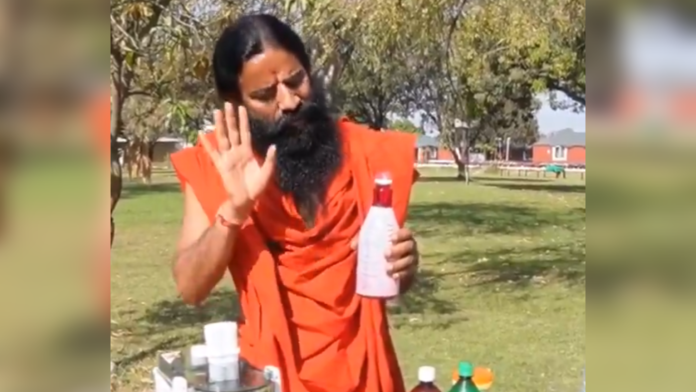Patanjali co-founder and yoga guru Baba Ramdev has once again found himself at the center of controversy after coining a new term — “Sharbat Jihad.” In a video posted on the official Facebook page of Patanjali Products, Ramdev claimed that consuming a certain unnamed soft drink supports the construction of mosques and madrasas, while buying Patanjali’s gulab sharbat helps build gurukuls, Patanjali University, and institutions aligned with “Bharatiya” traditions, reported the Siasat.
While he refrained from directly naming any brand, online users and media reports have speculated that he was referring to the iconic Rooh Afza, produced by Hamdard — a brand rooted in India’s Unani medicinal heritage and widely consumed, especially during Ramzan.
“Drink that sharbat and masjids, madrasas will be built,” said Ramdev. “Drink Patanjali’s sharbat and Bharatiya institutions will flourish.” The caption of the video went further, warning consumers to protect their families from the so-called “poison of toilet cleaners sold as soft drinks” in the name of “Sharbat Jihad.”
The remarks triggered widespread criticism on social media. Users slammed Ramdev for injecting communal narratives into consumer markets and using religion as a tool to promote business interests. One user noted, “He’s using mosque and madrasa to chase a political agenda, not public health.” Others questioned the quality and safety of Patanjali products, urging the company to focus on standards rather than divisive rhetoric.
Many commentators called the remarks deeply problematic, especially in a time when polarisation and hate speech are on the rise. “Mixing nationalism, commerce, and religion like this only deepens divides,” one user posted.
Despite the uproar, neither Hamdard nor Rooh Afza has issued any official response yet.
This isn’t the first time Ramdev has stirred controversy with inflammatory statements. However, this recent attempt to frame a religiously rooted beverage choice as a threat underscores the growing commercialisation of communal politics in India.




